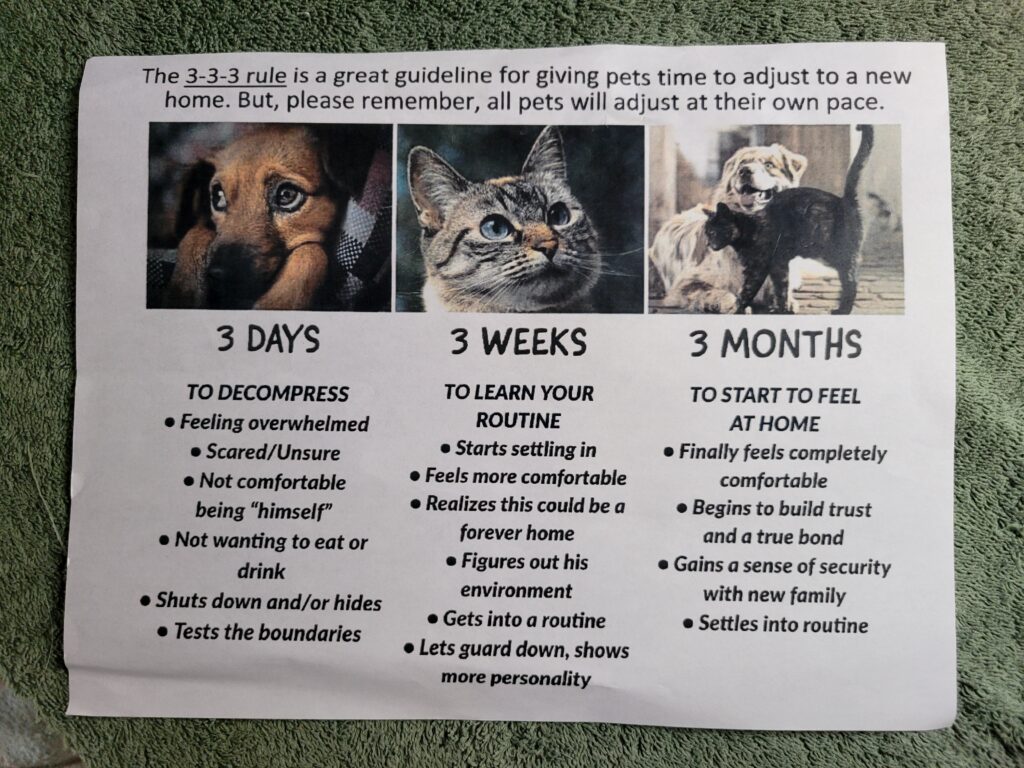DOG OWNERSHIP PART 1
It’s difficult for me to imagine life without a dog. Many people feel the same way. Dogless folks can yearn for life with a dog. They envision a happy home with a happy dog sharing their life with them. They imagine the benefits and fulfillment that comes with a companion.
To those folks, I’m here to talk you out of it. You need to get real, understand that the privilege of dog ownership comes with costs that you are not prepared for, both in time and money. Depending on the dog, lots of both sometimes. Dog ownership comes with massive amounts of responsibilities. Are you ready for it?
Money:
Even if you are given a free dog, you had already be looking forward to shelling out money. First of all, you’ll need to buy the basics, such as food. Whether you intend to feed your canine companion a general dog food diet or a complicated, well-researched raw diet, or anything in between.
What supplies will you need? Leash, collar, bed, toys, etc.? What about other critical needs, such as vaccinations, pet insurance, licensing, spay/neuter surgery, or other veterinary needs? This is just the beginning. There may be unforeseen costs in the future, such as training, boarding, health conditions, emergency vet visits, and so on. Time:
How much time do you have? How much time can you provide to your dog? How much time are you willing to provide? Do you have the time to build a trusting relationship with your dog? Do not think for one minute that, just because a dog “likes” you, you’ve created a bonded, let alone trusting, relationship. Dogs do not arrive perfectly behaved right out of the box. All dogs need time to become
accustomed to their new home whether it’s a puppy or a shelter rescue dog. Some will acclimate faster and easier than others. But, you’ll need to pack your patience in advance. Any dog you bring home needs time to learn what to expect and what’s expected of them. They need time to learn the structure of the house. Not only what time they can expect meals and exercise, but the rules, boundaries, and allowances of the household. They need to learn communication between you and them. They need to learn who the people are who live there or visit frequently.
Bottom line, the more you invest in time and/or money, the happier and healthier your life will be with your new companion.
DOG OWNERSHIP PART 2
Expectations: Are you killing your dog?
This post isn’t aimed at any one person in particular. There’s a little something for everyone. But, if you recognize yourself in it, then, yeah, I’m talking to you.
We’ve all seen dogs relaxing at outdoor cafes, running happily off-leash with other dogs in the dog park, viewed and read about dogs who are unlikely friends with other animals, and dogs who save lives. We’re practically taunted by the incredible dog behavior we see. We think to ourselves, “Amazing! I want a dog who will be like that!”. Or, we have fond childhood memories of a dog we grew up with and believe that all dogs are that way, or SHOULD be that way.
Guess what? Be disappointed because that’s likely NOT your dog. Celebrate if that’s already your dog. But, for every one of those dogs, there are probably nine others who have some sort of management issues such as fear reactivity to people or other animals, prey drive, etc.. However, those can be lofty goals. To put those types of expectations on a dog is an enormous amount of pressure. You are unfairly setting up your dog to fail in a manner which could be dangerous to others as well. What are you going to do if your dog can’t perform to your expectations?
Let me connect the dots about how expectations can kill a dog:
- A person has expectations (any expectations)
- The dog doesn’t like the expectations and reacts in an unfavorable, perhaps dangerous, manner
- Shocked and disappointed, the person surrenders the dog
- Nobody wants to adopt a potentially dangerous dog
- Dog gets killed
Hands-down, the biggest expectation people have is that their new dog will be out-of-the-box perfect when they bring him/her home from a shelter, breeder, Craigslist, etc. Puppies, seniors, and everything in between can be subject to the unrealistic whims of the new adopter. They EXPECT the new dog to be calm, polite, and know all and obey all commands. They want a plug-in dog. They don’t research the breed, the specific dog, nor their own lifestyle. “I’ve always wanted an Australian Shepherd!”, says the person who rents a one bedroom apartment. “I grew up with German Shepherds, so I know what they’re behavior is like”, says the person who hasn’t owned a dog since childhood. “I love pitbulls!”, says the person who owns fours cats. “I’ll adopt two dogs to keep each other company!”, says the person who likes to travel a lot.
“I’ll hire the best trainer!”, you say. That’s a pretty good start. But, it’s just a start. What are your expectations going to be afterwards? That the dog is magically “fixed” for the rest of its life? News flash…the dog is only “fixed” temporarily unless you continue to follow the trainer’s instructions for the rest of the dog’s life. And, certainly don’t EXPECT that the dog will “grow out it”. Without continued guidance and boundaries, they won’t.
A famous author, Tony Hillerman, once wrote an expression his mother told him as a child, “Expect little, and be seldom disappointed.” I tell people something similar; have high hopes, but low expectations. Then your dog will pleasantly surprise you.


